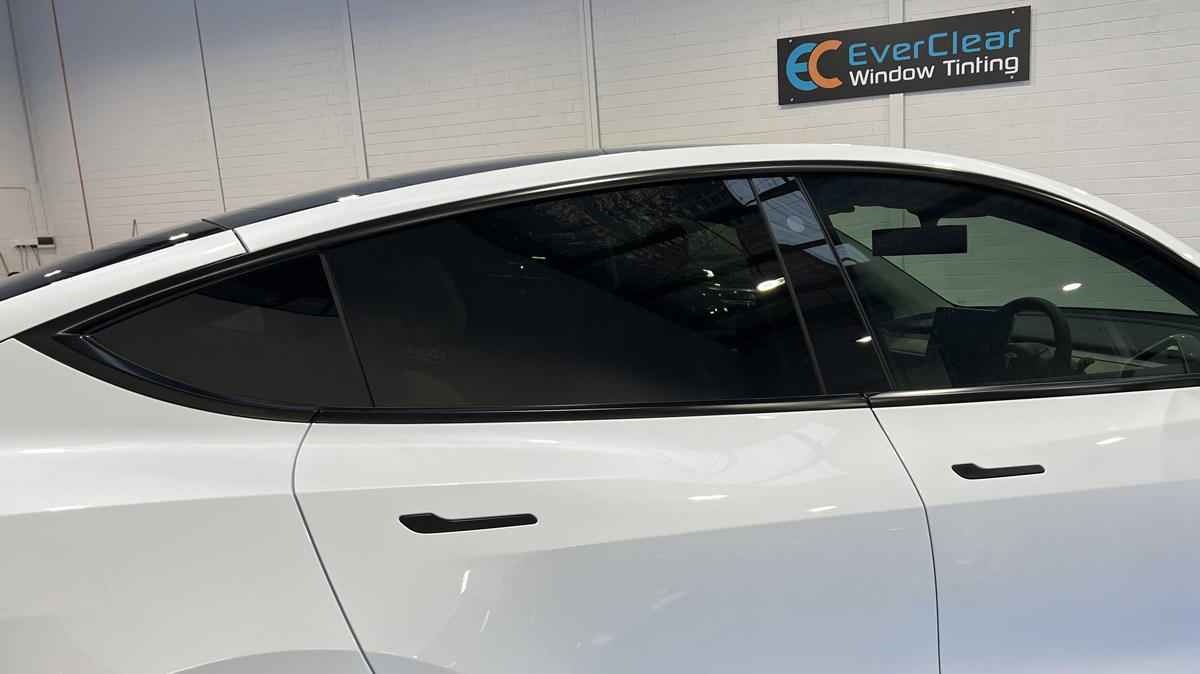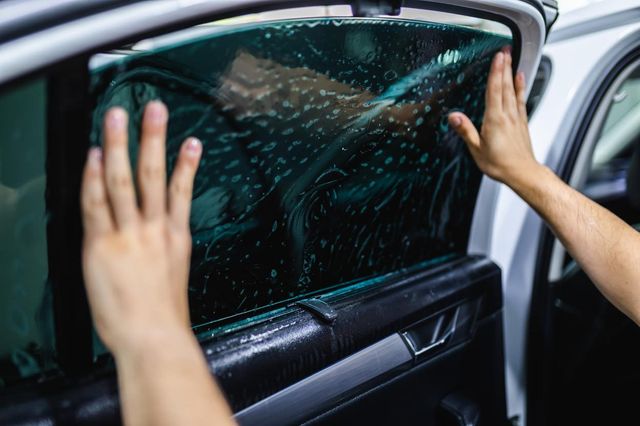Discover the Advantages of UV Defense with Car Window Tinting
Discover the Advantages of UV Defense with Car Window Tinting
Blog Article
Home Window Tinting Laws and Standards: What You Required to Know Before Tinting Your Cars And Truck
Prior to continuing with window tinting for your automobile, it is essential to familiarize on your own with the diverse legislations and standards that regulate this technique throughout different states. These laws dictate the permitted levels of tint darkness, commonly gauged by visible light transmission (VLT) percentages, and consist of certain specifications for front windscreens aimed at ensuring roadway safety.
Introduction of Window Tinting Laws
Window tinting legislations are often based on variant throughout various territories, showing regional laws and safety factors to consider. These laws dictate the permitted degrees of color darkness and reflectiveness on vehicle windows, making sure that chauffeurs preserve ample presence while also securing versus unsafe UV rays and warmth.
Many policies categorize home window tinting based on the Visible Light Transmission (VLT) percent, which shows the amount of light that can travel through the window. Usually, lower VLT percents symbolize darker tints. Laws usually differentiate in between the front, side, and back windows, with stricter constraints used to the front windscreen to enhance safety and security for both the motorist and other roadway users.
Conformity with home window tinting policies is vital, as offenses can result in penalties, required removal of the color, and potential rises in insurance policy premiums. It is vital for vehicle owners to acquaint themselves with neighborhood laws before continuing with window tinting setups.
State-by-State Tint Rules
Recognizing the specific window tinting policies in each state is important for car proprietors looking for to adhere to the regulation. Each state in the U.S. has actually developed its own set of guidelines regulating home window tinting, which can differ substantially. These guidelines usually dictate the allowable degrees of color darkness, the types of windows that can be tinted, and any kind of clinical exemptions that might use.
For circumstances, states like The golden state have stringent constraints on color darkness for front windows, while others, such as New Mexico, may allow darker tints. Furthermore, particular states mandate details presence percents for numerous home windows, including the windscreen, front side home windows, and rear windows. It is crucial for automobile owners to familiarize themselves with their state's laws to stay clear of possible fines or penalties.
Moreover, some states might call for an accreditation sticker to be placed on colored windows, indicating conformity with state legislations. Failure to follow these regulations not only runs the risk of lawful repercussions but can additionally affect security and visibility while driving. Vehicle proprietors should carry out extensive research or get in touch with local authorities to make certain complete understanding and compliance with state-by-state color regulations.
Allowed Tint Degrees and Types
Several car owners might be shocked to find out that enabled color degrees and types differ widely across different states. Each state has developed its own guidelines concerning the allowable darkness and reflectivity of window tint, typically gauged by Visible Light Transmission (VLT) percentages. VLT describes the quantity of light that can pass via the tinted windows; hence, a lower percentage shows a darker color.

Furthermore, the sorts of tint materials enabled can differ, with some states restricting metallic or mirror-like finishes. It is crucial for lorry proprietors to acquaint themselves with their state's particular legislations to ensure compliance. Non-compliance can lead to penalties, necessary removal of the tint, or various other legal repercussions, making it important to comprehend these guidelines before proceeding with installation.
Medical Exceptions for Tinting
While not all states provide allowances for medical exceptions regarding window tinting, those that do acknowledge the requirement for certain individuals to improve exposure and comfort as a result of clinical conditions. Various medical problems, such as lupus, skin cancer cells, and particular eye problems, can provide individuals particularly conscious sunlight. As a result, these individuals may call for darker colors to protect themselves from hazardous UV rays and glow.

It is necessary to keep in mind that despite a clinical exemption, there might still be restrictions on the degree of tint allowed. Conformity with state legislations guarantees that individuals are both protected and within lawful limits. Those thinking about medical exemptions should contact their neighborhood Department of Electric motor Cars or comparable authority to comprehend the needs and procedures necessary to hop over to these guys look for an exception effectively.
Charges for Non-Compliance
Stopping working to adhere to home window tinting legislations can bring about substantial fines, which vary by state. Regulation enforcement companies are equipped to provide citations for lorries that do not stick to the specified tinting guidelines. These charges typically include fines, which can range from modest total up to a number of hundred dollars, depending on the severity of the offense and the state in question.
In some territories, repeated offenses may result in escalating fines or additional charges, such as required court looks. Non-compliance may require the elimination of unlawful tinting, commonly at the proprietor's cost. In severe cases, regular transgressors might face suspension of their automobile registration till conformity is attained.
Furthermore, insurance policy implications might emerge from obtaining numerous citations for window tint infractions. Insurance companies may check out such infractions as an indicator of riskier behavior, possibly resulting in boosted premiums or difficulty in insurance coverage.
To avoid these penalties, it is essential for lorry owners to acquaint themselves with their regional home window tinting regulations and guarantee that their vehicle complies (Window Tinting). This proactive approach not i was reading this only avoids legal ramifications but also advertises roadway safety and security
Verdict

The majority of regulations identify home window tinting based on the Visible Light Transmission (VLT) portion, which indicates the amount of light that can pass via the window. Conformity with window tinting policies is important, as offenses can result in fines, required elimination of the tint, and possible boosts in insurance coverage costs.Understanding the certain window tinting policies in each state is crucial for lorry owners looking for to comply with the law. These regulations usually determine the allowable degrees of tint darkness, the kinds of windows that can be tinted, and any type of medical exemptions that might use.
For instance, states like California have rigorous constraints on tint darkness for front home windows, while others, such as New Mexico, may allow darker colors.
Report this page